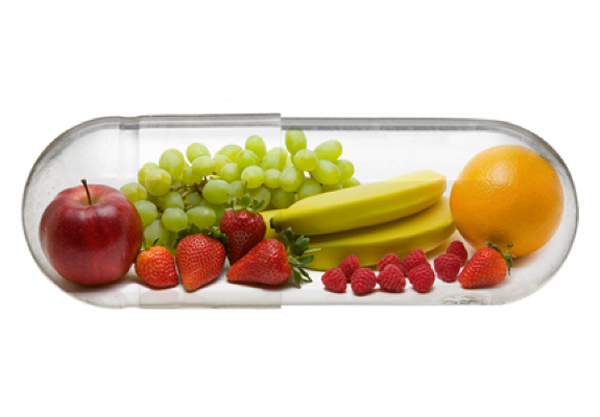Just as your body’s nutrition needs change with various body composition goals, performance demands, and stages of life, your nutrition needs also change when recovering from a traumatic illness or medical event.
For example, if you decide to become an endurance athlete (i.e., marathon, duathlon, triathlon runner). There is a particular nutrition protocol that would provide fuel and recovery unique to extended bouts of physical demand.
Your focus would be on an electrolyte-rich diet with an exceptionally high carbohydrate-to-protein-to-fat ratio, so much so that it would promote fat storage in most people who are not experiencing high energy demand. Yet, most athletes that eat this way are lean performance machines!
Having a significant medical event also changes your body’s nutrition needs, and more significantly so than most are aware.
When your body is distressed, the need for very simple to digest/nutrient-dense foods dramatically increases, while your need for caloric significance becomes moderated. So, if you are in a position of recovering from a medical event, using the information below will make a significant difference in how quickly your body heals.
- EAT YOUR GREENS: Vegetables such as kale, spinach, arugula, mustard greens, and Swiss chard contain exceptionally high levels of nutrients shown to dramatically reduce inflammation while providing a significant boost in immune function. They can be served steamed, in soups, added to salads, lightly sauteed, or even added to items such as meatballs, omelets, or pasta sauce. Aim for 2-3 servings per day while you are in recovery.
- BUMP UP THE PROTEIN: When your body is recovering from trauma such as injury or surgery, your need for quality protein increases significantly. This is because proteins contain amino acids that your body utilizes to rebuild damaged cells. The best sources shown to aid in the recovery process of body tissues are eggs, fish, liver, and poultry, such as turkey or chicken. These proteins provide essential building blocks and are excellent sources of vitamin-A, vitamin B-12, zinc, iron, selenium, the amino acid glutamine, which aids in cell protection, and the amino acid arginine, which improves circulation. At least one of these proteins should be the center of each of a minimum of three daily meals measured at .50 grams of protein per pound of body weight daily (i.e., a 150-pound person would eat 75 grams of protein per day @ 25 grams per meal x 3 meals).
- GET MORE OMEGA-3’s: Foods high in Omega-3 fatty acids, such as salmon, walnuts, mackerel, flax seeds, and chia seeds, play a significant role in promoting wound healing, boosting immune function, and aid in the reduction of inflammation. A component of the foods within this category should make its way into at least two of three meals daily. The nuts and seeds complement various salads, and the salmon is highly versatile and can be made in numerous ways (grilled, roasted, steamed, in salads, as a salad, patties, burgers, etc.) to create culinary diversity.
- DON’T MISS YOUR BERRIES: These little super-foods not only make for a tasty treat, but berries such as blueberries and raspberries in particular, are also incredibly high in vitamin-c, anti-oxidants like anthocyanins and contain phytochemical compounds that provide strong anti-inflammatory, anti-viral, and immune-boosting effects. These can easily be added to morning breakfast and topped with granola or enjoyed by the handful as a healthy snack or light dessert after a meal. 2-3 servings daily during your recovery period will reward you righteously!
- GO CRUCIFEROUS: Vegetables in this category, such as cauliflower, broccoli, brussels sprouts, and kale, are all high in compounds known as glucosinolates. These compounds are synthesized in your body into potent sub-cyanate compounds that enhance immune function, suppress inflammation, and aid the body in eradicating infected cells. At least one of these vegetables should appear in a minimum of two daily meals as you recover. These veggies go well in soups (using natural bone-broth bases), stews, salads, steamed or sautéed on the side, or even a healthy yogurt-based dip!
Just as there are foods to gravitate toward when you are recovering, there are some foods you should seek to avoid as they may hamper your recovery.
– Avoid anything containing simple sugars (candy, confections, bakery goods). Sugar enhances inflammation, can amplify pain, and slows healing
– Stay away from alcohol – it is both a diuretic (dehydrates your cells) and a toxin that taxes your body’s systems, slowing healing and recovery.
– Hold off on red and high-fat meats – not only are these MUCH higher in calories, the digestive issues (constipation) that can often come with pain medication or anesthesia can also be made worse in trying to process these proteins.
– Approach dairy with caution – though dairy is usually a good source of protein, it can be a source of stomach upset and promote other digestive issues (such as constipation) while also taking pain medication or after anesthesia.
*Footnote; as your stomach can tolerate it, snacking on items that contain active probiotic cultures (yogurt, sauerkraut, kefir, etc.) will help to restore digestive flora health.
– Limit your salt intake – elevated levels of sodium, while your body is recovering from trauma or a significant medical event, have been linked to increased risk of stroke, cardiovascular events, and unsafe increases in blood pressure.
Though it is always the best-case scenario to remain in perfect health and avoid medical issues altogether, this isn’t the reality of life for most. However, though you cannot always avoid illness, injuries, or medical procedures, with a bit of diligence, you can enjoy the powerful benefits of medicinal foods!
Joe Carson B.S. NASM-CPT/FAS/CN
Master Trainer/Functional Aging Specialist/Certified Nutritionist
Age-Well Arizona





